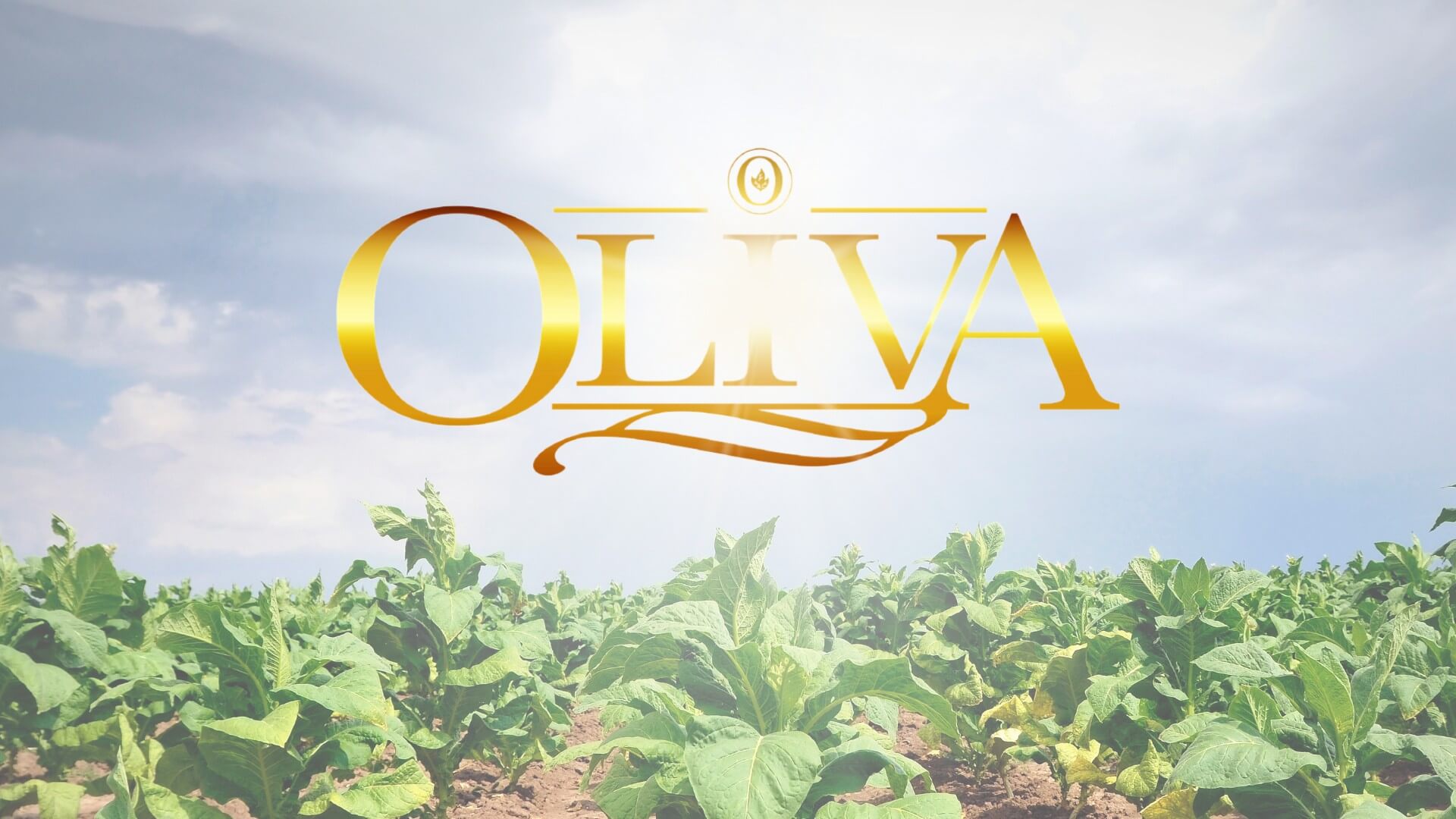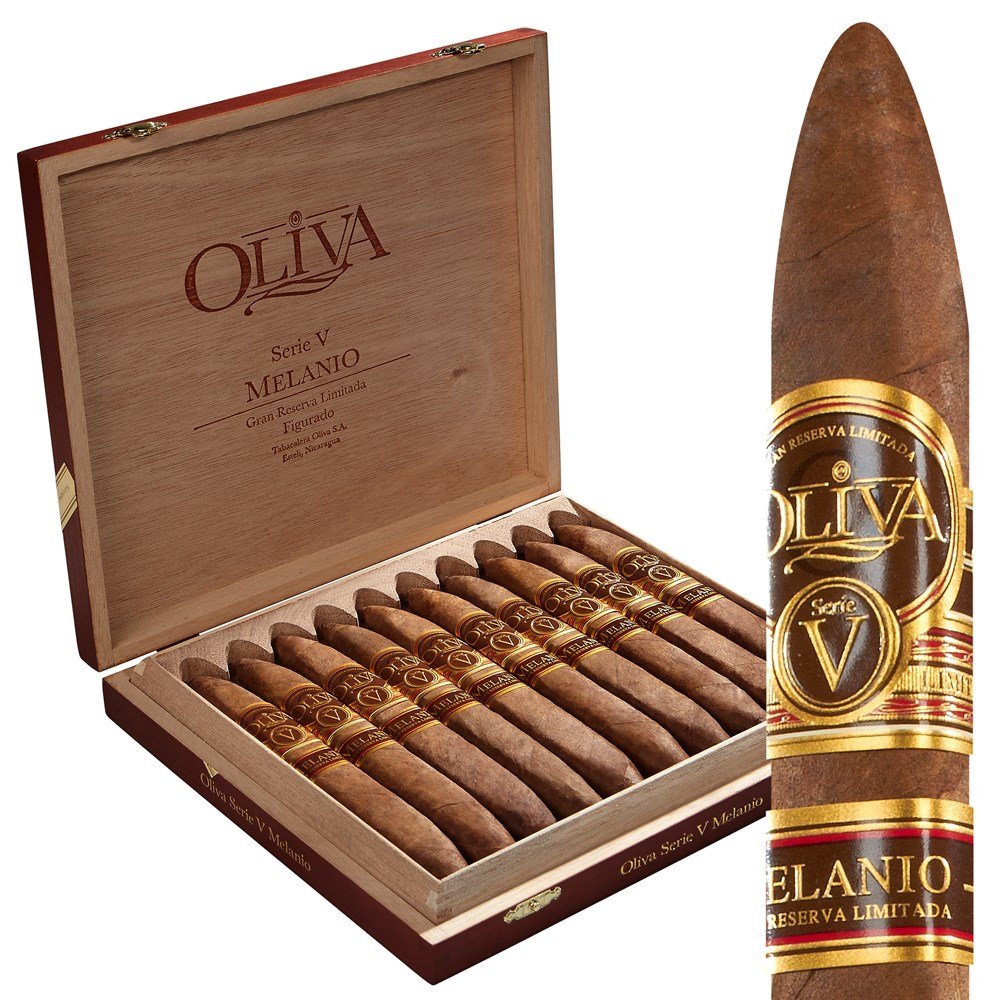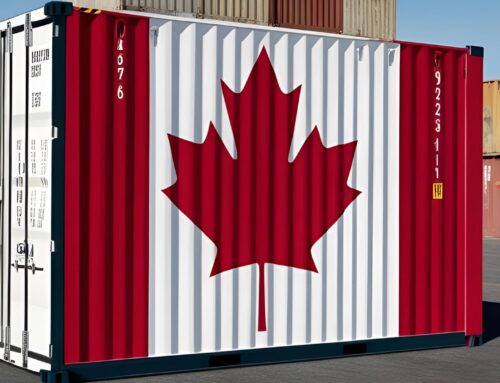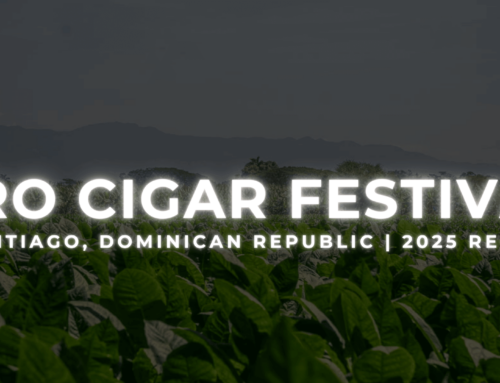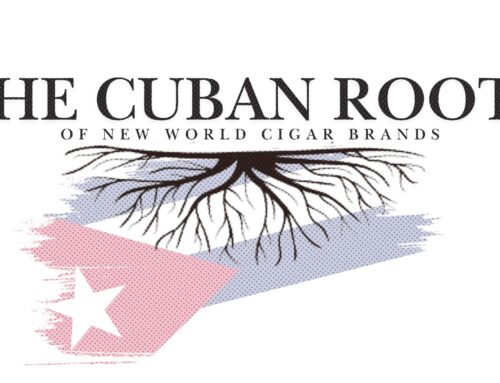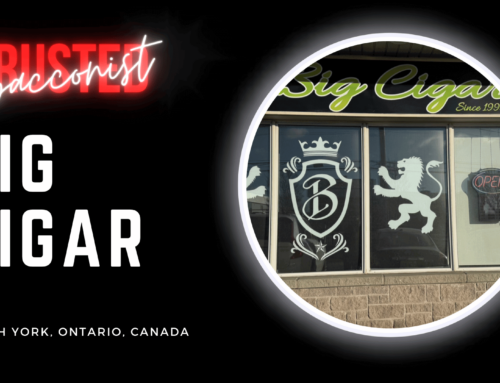To delve deeper into what the world-renown cigar brand is all about, we recently we asked Oliva Cigar Co.’s International Brand Ambassador Brian Shapiro a few questions.
Though Oliva was established in 1995 in Nicaragua, the Oliva family has been inextricably tied to tobacco and cigars for nearly a century and a half.
At the time of writing, they are the second largest grower of Cuban seed tobacco in Nicaragua, and are among the most critically acclaimed brands of premium cigars available.
Over the past few decades, International Brand Ambassador Brian Shapiro has seen Oliva grow exponentially – a success story that didn’t exactly happen overnight.
Shapiro was among the major driving forces that brought Oliva Cigars to international markets beyond the United States.
The following features an interview with Brian, as well as a brief history of Oliva Cigars Co.
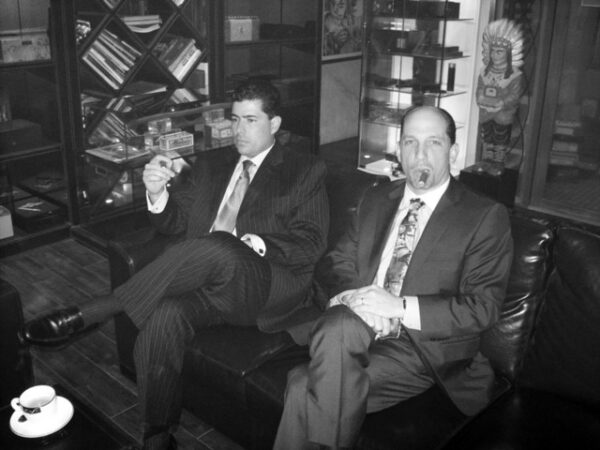
Brian Shapiro and former CEO Jose Oliva in Shanghai, China in 2010
HOH: Brian, what cigar first put Oliva on the map within the international community?
BS: The Serie V Torpedo received a 93 rating by Cigar Aficionado Magazine in 2007. That was our first breakout rating. We had just started in the international markets, so this was very important to us. It essentially put Oliva on the map outside of the USA, but that was just the very beginning; it was still a long road to get to where we are now.
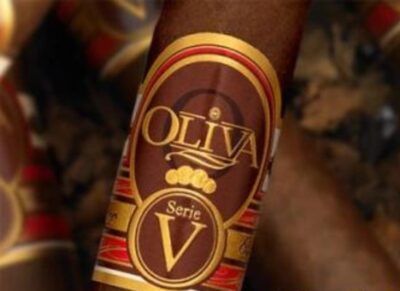
HOH: How did the company keep up with the demand that was generated for the Serie V Melanio Figurado when it won the coveted Cigar Aficionado ‘Cigar Of The Year’ in 2014?

BS: It was a challenge for sure, but we had previously seen other brands unsuccessfully try to rush cigars to market after achieving the number one. I won’t mention names [he chuckles].
We took our time; slowly, methodically increasing production to keep supply moving until we had eventually fulfilled the demand. We held firm, and never released cigars until they were ready and they lived up to our standards. It proved to be a successful plan, as we still live off that number one almost ten years later.
HOH: Of course, there’s diversity to be found within the Oliva portfolio, far beyond its almighty Serie V. Cigars like the NUB for example. What are your thoughts on the NUB?
BS: Nub is an interesting brand. It has become popular beyond anything we could have imagined when we first launched the concept.
HOH: Which NUB do you prefer?
BS: While I don’t regularly smoke this format, when I do, it’s almost always the Connecticut.
“We held firm, and never released cigars until they were ready and they lived up to our standards. It proved to be a successful plan, as we still live off that number one almost ten years later.”
HOH: How has the company evolved under J. Cortès ownership? [Oliva was acquired in 2016 by J. Cortès Cigars N.V., a private, family-owned business based in Belgium, that specializes in European-style machine-made cigars]
BS: The combination of Jose Oliva and our new owner, Fred Vandermarliere has worked splendidly. Two families of one mind. After acquiring the company, Fred continued to invest in infrastructure – refurbishing our main factory, building new ones, increasing our agriculture, growing and processing. In essence, taking the best of the old regime and making it even better. The resources we have globally through VCF [the parent company of which J. Cortes is only one brand] makes us a leader in our industry, and we are fortunate to have such an amazing organization.
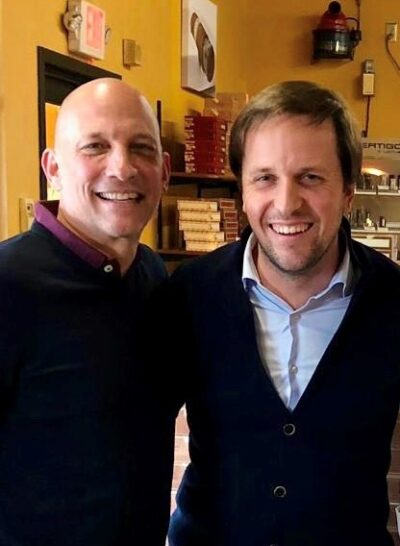
Brian and Fred Vandermarliere, J. Cortès N.V. CEO
HOH: Of all the Oliva cigars you’ve smoked over the years, what cigar would you describe as “the quintessential Oliva cigar”?
B.S: My personal favorite has always been the Serie V. I smoke the Double Robusto or the Churchill depending on my available time.
HOH: Why is it deserving of this distinction?
BS: I find this blend to be so flavorful; full-bodied, but very smooth.
HOH: It really is a wonderful cigar. Thank you for sharing this with us Brian. Canadian cigar lovers certainly love Oliva cigars.
BS: Thanks for playing a key role in bringing this brand to the Canadian marketplace.
OLIVA CIGAR PROFILE: Serie V Melanio Figurado
Rated a whopping 96 by Cigar Aficionado Magazine, the Serie V Melanio is a complex blend of Nicaraguan long filler tobaccos. Blended with specially fermented Jalapa Valley ligero, and finished with a high priming Sumatra-seed wrapper grown in Ecuador.
This flavorful blend exhibits complex tobacco with rich coffee and dark chocolate tones.
Oliva: A Brief History
In the year 1886, Melanio Oliva planted his first tobacco seeds within the lush province of Pinar del Rio in Cuba.
It is here that the family’s initial ‘tobacco patriarch’ first cultivated tobacco.
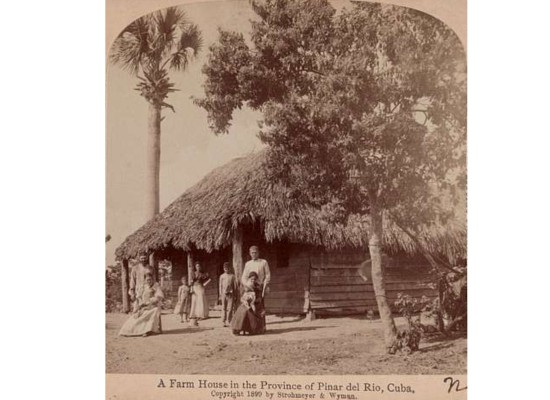
A farm house in the region of Pinar del Rio, 1899
Melanio farmed tobacco until he took up arms in Cuba’s War of Independence against Spain.
After the war, and thirteen years later, he resumed tobacco growing operations up until his son Hippolito would occupy the position at the helm. Hippolito carried on as a tobacco farmer for several decades until his son, Gilberto ultimately took over.
Eventually, Gilberto made the shift to become a tobacco broker.
Around the time of Castro’s Cuban Revolution, the Oliva family had already been perfecting their craft with tobacco for around 75 years in Cuba. As the new political climate was not conducive to the advancement of their business, it became time to find a new home for the family run operation.
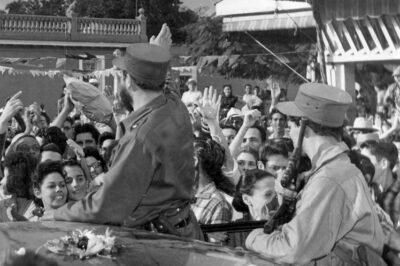
Fidel Castro visits Pinar del Rio in 1960
In 1964, Gilberto fled Cuba and would soon visit many different parts of the world in search of a new location to work with tobacco.
He first set out for Spain, and then travelled to other nations, which included Honduras, Panama, Mexico and even the Philippines.
He eventually settled in Central America in the country of Nicaragua. Here, the rich and dense volcanic soil was deemed as ideal for growing tobacco of utmost quality, and effectively recreating that ‘Cuban taste’.
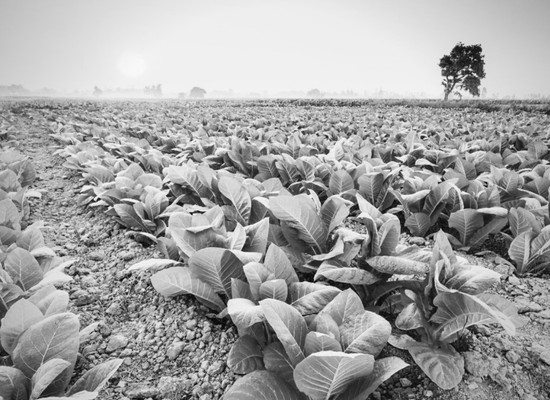
For Gilberto Oliva, much of the late 1960s and early 1970s were spent working with tobacco in Nicaragua.
In 1979, while Nicaragua was fast becoming divided from an uprising by the Sandinista rebels, Gilberto and his wife made the decision to relocate to New Jersey, USA to continue raise their family (eventually, they would have 5 children in total).
In 1980, the Nicaraguan tobacco industry became completely nationalized under the Sandinistas, a situation that was very similar to what had previously transpired in Cuba.
This resulted in a US-imposed embargo with Nicaragua, which greatly impacted the tobacco industry.
Throughout the 1980s, civil war and constant political turmoil greatly hampered the Nicaraguan tobacco industry. Wages dropped off as subpar quality cigars piled up.
Such conditions persisted in Nicaragua until the embargo was eventually lifted by the US and a new government finally replaced the Sandinistas in 1990s.
Eventually, Gilberto returned to Nicaragua in the 1990s.
In 1995, Gilberto Oliva and his son Gilberto Jr. founded Gilberto Oliva Cigar Co., and later shortened the name to simply ‘Oliva Cigar Co.’. They originally began making cigars within Nestor Plasencia’s factory in Nicaragua. In less than a year, their sales enabled them to open their own facility.
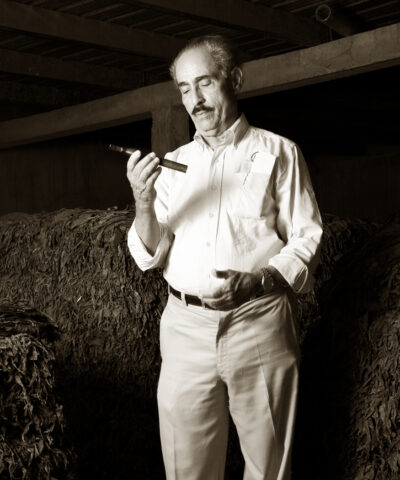
Gilberto F. Oliva Sr.
Following their time-honored methods of curing, blending, and rolling, Oliva utilized a small team of rollers to develop a distinguished taste profile that ultimately fell into serious favor with cigar smokers. This became truly evident with the introduction of the Oliva Serie V in 2006 – the company’s first full-bodied release, and their first cigar of great acclaim.
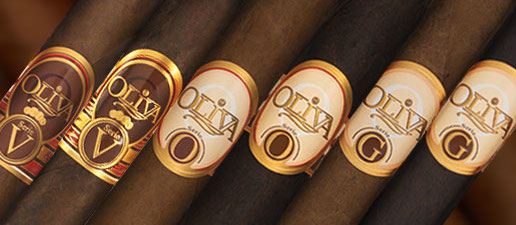
Though success had not come immediately, Oliva would eventually go on to garner great critical acclaim, and receive many of top ratings from industry experts and consumers alike, culminating with Cigar Aficionado Magazine awarding the Oliva Serie V Melanio Figurado Cigar of the Year in 2014.
This cigar was created to honor Melanio Oliva – the man who started it all.
Oliva cigars have made Cigar Aficionado’s Top 25 list an astonishing nine years in a row.
Today, they have expanded the original factory (Tabolisa I), opened a second factory (Tabolisa II), and manufacture nearly 40 million cigars per year.
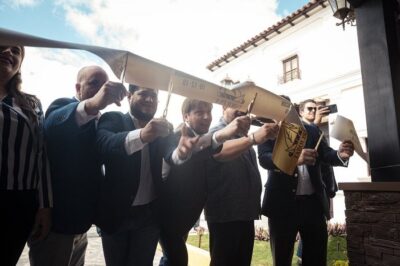
Honorary ribbon cutting to open Tabolisa II, Oliva Cigars’ newest factory in Esteli
Though the brand and its infrastructure have expanded under its new J. Cortès ownership, it remains loyal to the methodology and the people that built a cigar legacy.

